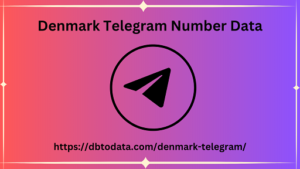Post by amirmukaddas on Mar 11, 2024 6:00:25 GMT
Searching for topics can be confused with searching for keywords, but it is not the same thing. To grasp the essence, let's first define the difference between keyword research and topic research. What is a keyword A keyword is an entity composed of one or more terms that are characterized by having a search volume observable through the tools made available by Google itself or by another company. Keyword research is the discipline that starts from the extraction of the keywords for which a certain website is positioned in the response pages of Google web search. Starting from the extraction of the tables or in any case from the results shown on the screen, an SEO makes choices by selecting the most interesting keywords in terms of search volume and relevance with the other information in his possession. The selections are subsequently processed to define the titles of the editorial plan. Exactly, usually keywords are used to create titles, at most the internal headers of the pages. For the rest you have to do topic research. What is a topic A topic is a topic to be covered on the page, regardless of whether it has an assigned search volume. Very often SEOs also use the keywords extracted from the tools to cover the development of internal topics, leaving out important nuances that can only be grasped by doing topic research. I use Seo-Hero.tech (when it works) by Walid Gabteni , a French colleague who I respect for his technical preparation and above all for his somewhat pirate spirit.
Seo-Hero is a free tool that frames all textual entities composed of two and three terms, which are simply characterized by being more frequently distributed within the first 100 Google results for a given input query. The search volume has nothing to do with it, so they are not necessarily keywords. Once all the noise that inevitably arises has been cleaned up, very interesting editorial nuances and transversality Denmark Telegram Number Data always emerge that often create those semantic vectors that make the difference and allow me to compete with more important websites in terms of trust and volume of editorial focus. . It is David who defeats Goliath. Advanced Topic Research But what makes the difference is Semrush, with its Topic Research Tool , an incredible and unique algorithm of its kind, which analyzes Google results for a given input query, returning all the headings and phrases most frequently included on the page. Furthermore, the tool finds all the questions related to the single sub topic, making the results selectable and organizeable with different views.

It is the only Semrush tool that does not draw on their databases, simply because it does not generate keywords, but rather topics, so it takes longer than normal, precisely because it starts fishing in the pages of websites already positioned, ultimately saving me weeks for the drafting of indications for drawing up an SEO editorial plan . For this tool to be developed, I besieged Semrush friends with emails and calls for an endless time and I remember the long calls with the developers in St. Petersburg to transfer all my feedback and ideas. It was what I needed to get away from keyword research in the classic sense, but now that you know this "secret" of mine, don't be naive to consider this tool a panacea, because nothing replaces the careful gaze of an SEO who studies the SERPs, but above all, remember that web pages are not always positioned solely on the basis of the text they contain, but there is much more, so make yourself comfortable and open your eyes wide.
Seo-Hero is a free tool that frames all textual entities composed of two and three terms, which are simply characterized by being more frequently distributed within the first 100 Google results for a given input query. The search volume has nothing to do with it, so they are not necessarily keywords. Once all the noise that inevitably arises has been cleaned up, very interesting editorial nuances and transversality Denmark Telegram Number Data always emerge that often create those semantic vectors that make the difference and allow me to compete with more important websites in terms of trust and volume of editorial focus. . It is David who defeats Goliath. Advanced Topic Research But what makes the difference is Semrush, with its Topic Research Tool , an incredible and unique algorithm of its kind, which analyzes Google results for a given input query, returning all the headings and phrases most frequently included on the page. Furthermore, the tool finds all the questions related to the single sub topic, making the results selectable and organizeable with different views.

It is the only Semrush tool that does not draw on their databases, simply because it does not generate keywords, but rather topics, so it takes longer than normal, precisely because it starts fishing in the pages of websites already positioned, ultimately saving me weeks for the drafting of indications for drawing up an SEO editorial plan . For this tool to be developed, I besieged Semrush friends with emails and calls for an endless time and I remember the long calls with the developers in St. Petersburg to transfer all my feedback and ideas. It was what I needed to get away from keyword research in the classic sense, but now that you know this "secret" of mine, don't be naive to consider this tool a panacea, because nothing replaces the careful gaze of an SEO who studies the SERPs, but above all, remember that web pages are not always positioned solely on the basis of the text they contain, but there is much more, so make yourself comfortable and open your eyes wide.



